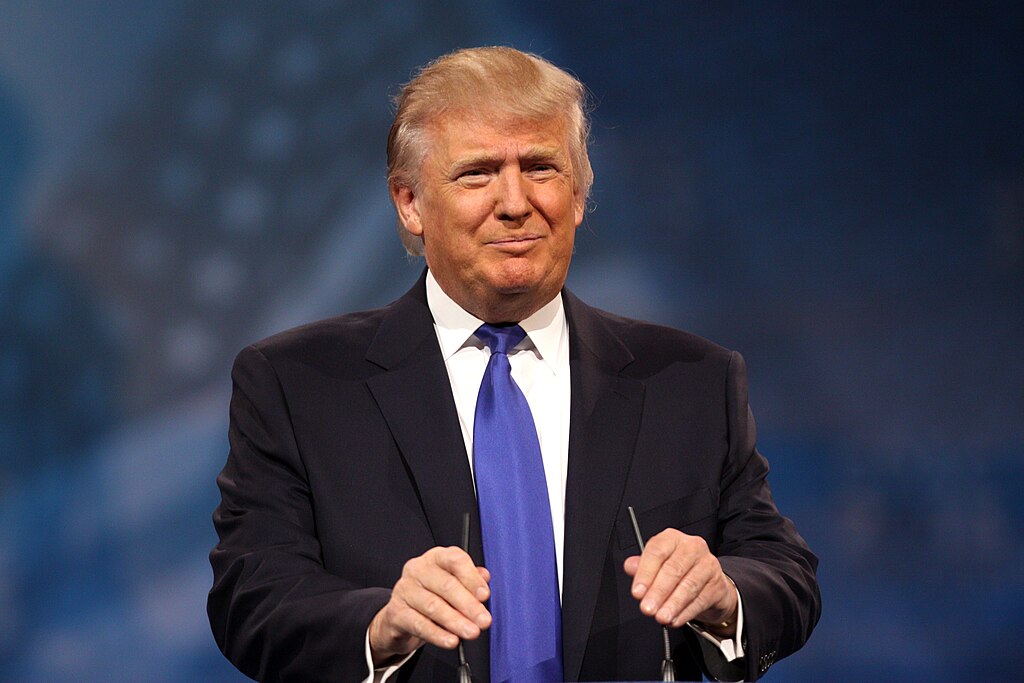President-elect Donald Trump has reignited national debate over voting rights with a sweeping proposal to overhaul the U.S. electoral system. Speaking Thursday night at a Fox Nation-organized event in Long Island, where he accepted the “Patriot of the Year” award, Trump detailed his plans to implement same-day voting, voter ID requirements, and citizenship proof for casting ballots.
A Push for Sweeping Election Reform
Trump, 78, received the award after a rousing rendition of God Bless the USA and wasted no time diving into his controversial proposals. “We need to straighten out elections in this country,” he declared to a crowd of supporters. “We’re talking about paper ballots, one-day voting, voter ID, and proof of citizenship.” He also criticized a recent California law that prohibits requiring voter identification at polling stations, calling it “a crime to democracy.”
This isn’t the first time Trump has championed changes to the electoral system. During an August rally in Johnstown, Pennsylvania, he pushed for eliminating mail-in voting entirely and returning to paper ballots. Critics argue these changes would make voting harder for certain groups, including rural and disabled voters, who rely heavily on early or mail-in voting.
Controversy Over Voting Access
While Trump has framed his proposals as a means of ensuring election integrity, detractors contend they could disenfranchise millions. Civil rights advocates warn that requiring citizenship documentation could disproportionately affect nonwhite voters, many of whom lack easy access to such paperwork. According to NPR, these voters often lean Democratic, raising concerns that the changes could have political motivations.
Mail-in voting has become a contentious topic in recent years, particularly since the pandemic. In 2024, nearly 90 million Americans utilized mail-in or early voting options, marking a dramatic shift in how elections are conducted. While Trump previously decried mail-in ballots as “dangerous” and linked them to fraud, he later reversed course, urging his supporters to vote early during the 2024 election cycle.
Federal Election Commission data underscores the rarity of voter fraud, with rates less than 0.0009 percent nationwide. Still, Trump’s campaign has pointed to isolated incidents, such as the 2018 North Carolina primary, to bolster its claims.
Mixed Reactions Online
Social media users reacted swiftly to Trump’s proposals, with opinions divided:
- @VoteForJustice: “Trump wants same-day voting? What about disabled voters who can’t make it to the polls? Unbelievable.”
- @PatriotForChange: “Finally, someone addressing the mess that is mail-in voting. One-day voting is how it should be!”
- @DemocracyNow: “Citizenship papers for voting? This is voter suppression dressed up as reform.”
- @RuralVoter22: “As someone who votes early because of my job, this would make voting nearly impossible for me.”
- @ElectionTruth: “How is asking for voter ID controversial? We need integrity in elections, plain and simple.”
- @InclusivityMatters: “Paper ballots? We’re regressing instead of progressing. What about accessibility and modernization?”
Challenges Ahead for Trump’s Plan
While Trump’s proposals align with his long-standing narrative of strengthening election integrity, critics argue they could alienate key voter groups. For example, rural areas in battleground states—which have high rates of early voters—could face logistical hurdles with one-day voting. Likewise, requiring photo IDs and citizenship documentation might inadvertently exclude marginalized communities.
Despite these concerns, Trump’s messaging resonates with his base, which remains committed to his vision of revamping the electoral process. However, analysts warn that any attempt to implement these reforms would likely face legal challenges.



 Trump Announces U.S. Strikes on Iran Navy as Conflict Escalates
Trump Announces U.S. Strikes on Iran Navy as Conflict Escalates  Argentina Tax Reform 2026: President Javier Milei Pushes Lower Taxes and Structural Changes
Argentina Tax Reform 2026: President Javier Milei Pushes Lower Taxes and Structural Changes  U.S.-Israel Strike on Iran Escalates Middle East Conflict, Trump Claims Khamenei Killed
U.S.-Israel Strike on Iran Escalates Middle East Conflict, Trump Claims Khamenei Killed  Pentagon Leaders Monitor U.S. Iran Operation from Mar-a-Lago
Pentagon Leaders Monitor U.S. Iran Operation from Mar-a-Lago  Iran Supreme Leader Ayatollah Ali Khamenei Killed in Israeli, U.S. Strikes: Reuters
Iran Supreme Leader Ayatollah Ali Khamenei Killed in Israeli, U.S. Strikes: Reuters  UK Accepts U.S. Request to Use British Bases for Defensive Strikes on Iranian Missiles
UK Accepts U.S. Request to Use British Bases for Defensive Strikes on Iranian Missiles  Trump Says U.S. Combat Operations in Iran Will Continue Until Objectives Are Met
Trump Says U.S. Combat Operations in Iran Will Continue Until Objectives Are Met  Israel Declares State of Emergency as Iran Launches Missile Attacks
Israel Declares State of Emergency as Iran Launches Missile Attacks  U.S. Deploys Tomahawks, B-2 Bombers, F-35 Jets and AI Tools in Operation Epic Fury Against Iran
U.S. Deploys Tomahawks, B-2 Bombers, F-35 Jets and AI Tools in Operation Epic Fury Against Iran  Does international law still matter? The strike on the girls’ school in Iran shows why we need it
Does international law still matter? The strike on the girls’ school in Iran shows why we need it  EU Urges Maximum Restraint in Iran Conflict Amid Fears of Regional Escalation and Oil Supply Disruption
EU Urges Maximum Restraint in Iran Conflict Amid Fears of Regional Escalation and Oil Supply Disruption  Why did Iran bomb Dubai? A Middle East expert explains the regional alliances at play
Why did Iran bomb Dubai? A Middle East expert explains the regional alliances at play  Australia Rules Out Military Involvement in Iran Conflict as Middle East Tensions Escalate
Australia Rules Out Military Involvement in Iran Conflict as Middle East Tensions Escalate  Suspected Drone Strike Hits RAF Akrotiri Base in Cyprus, Causing Limited Damage
Suspected Drone Strike Hits RAF Akrotiri Base in Cyprus, Causing Limited Damage  Israel Launches Fresh Strikes on Iran After Death of Supreme Leader Ayatollah Khamenei
Israel Launches Fresh Strikes on Iran After Death of Supreme Leader Ayatollah Khamenei  Trump Says U.S. Attacks on Iran Will Continue, Warns of More American Casualties
Trump Says U.S. Attacks on Iran Will Continue, Warns of More American Casualties  Trump Warns Iran as Gulf Conflict Disrupts Oil Markets and Global Trade
Trump Warns Iran as Gulf Conflict Disrupts Oil Markets and Global Trade 
































